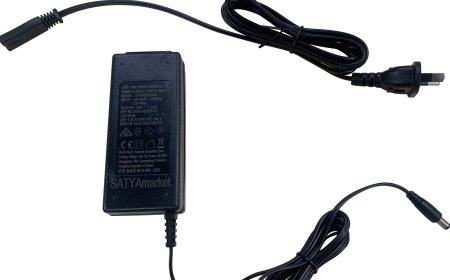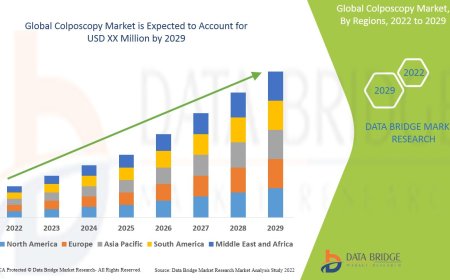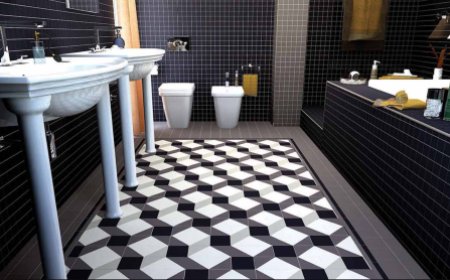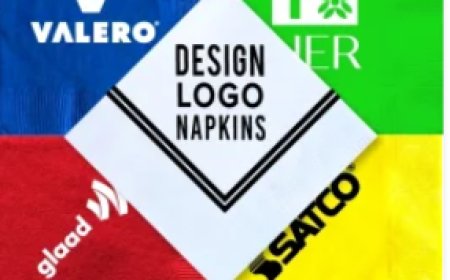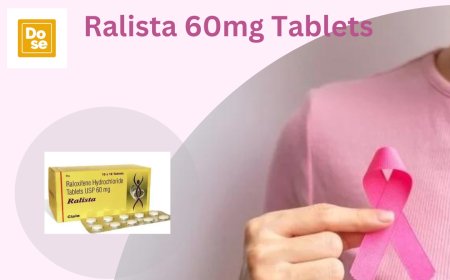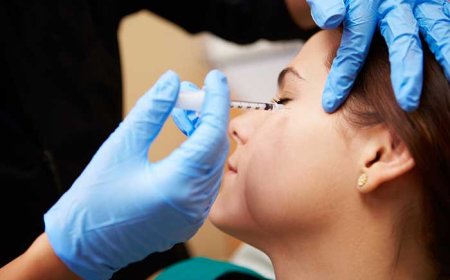Healthcare & Biotech Breakthroughs: What’s New in 2025?
Whether it’s gene therapies, digital healthcare, or AI-assisted diagnostics, these aren’t just buzzwords—they're part of a fast-moving shift in how we’ll approach care moving forward.

Its hard to ignore how fast healthcare and biotech are evolving. Every time I open a news app or scroll through headlines, I see something about a breakthrough treatment or an FDA greenlight that could change lives. As someone who stays tuned into wellness trendsespecially from a consumer product perspective like vapingthese developments really catch my eye.
And with 2025 shaping up to be another strong year for innovation, I wanted to take a moment to unpack whats happening across the healthcare and biotech landscape.
Why It Matters: The Problem With Current Healthcare Gaps
Traditional Treatment Still Has Roadblocks
Even with all our progress in science and technology, many people still struggle to get access to quality care. Ive seen friends wait months for a specialist appointment, or others who cant afford critical prescriptions. And then theres the emotional toll of living with conditions that have no effective treatment options.
Some of the biggest challenges still include:
-
limited access to specialists, especially in rural or underserved areas
-
rising healthcare costs for both treatment and insurance
-
slow approval processes for promising drugs and therapies
-
a lack of personalized care, leaving patients with one-size-fits-all treatment plans
These issues dont just affect people with complex illnessesthey impact nearly all of us, directly or indirectly. Whether you're dealing with chronic conditions or simply trying to maintain your well-being, the cracks in the system are hard to ignore.
Patients Are Asking for Betterand Getting It
Over the past couple of years, Ive noticed something encouraging. Theres a real push from both patients and startups to demand faster, smarter, and more affordable care. And honestly? The system seems to be listening.
Thanks to increased federal support and private sector investment, biotech companies and health tech startups are tackling big problems. Theyre developing treatments that are more precise, platforms that reduce wait times, and therapies that actually target root causes instead of just managing symptoms.
The momentum is realand it's starting to show up in everyday lives.
Major Breakthroughs Happening Right Now
1. Gene Therapy Is Entering a New Era
One of the most exciting things Ive read about lately is the rise of gene therapy. For a long time, this was mostly theoreticalsomething that felt years away. Now, its becoming a clinical reality.
A biotech firm recently got FDA approval for a gene therapy targeting spinal muscular atrophy (SMA). This condition was once a devastating diagnosis for infants, but early data shows that the therapy may prevent progression if administered in time.
Other companies are pushing forward with:
-
CRISPR-based edits for rare blood disorders like sickle cell disease
-
gene silencing approaches for Huntingtons and ALS
-
oncology applications using gene delivery to weaken tumor cells
These arent vague ideas. Were talking about actual treatments that have cleared clinical trials and are moving into production.
2. Telehealth Is ExpandingNot Shrinking
A few years ago, I tried telehealth for the first time during the pandemic. At the time, it felt like a workaround. Now, I prefer it for a lot of routine check-ins. And apparently, Im not alone.
Telehealth usage remains over 35% higher than pre-2020 levels, according to 2025 healthcare industry reports. Whats really cool is that its not just video calls anymore. Telehealth platforms are offering:
-
remote diagnostic tools like at-home EKGs and glucose monitors
-
mental health therapy with same-day scheduling
-
integrated pharmacy services for faster prescription delivery
-
multilingual support for broader accessibility
One platform even announced theyre integrating AI symptom checkers that can flag issues before you even meet with a doctor.
And yes, I still prefer to ask my doctor directly about things like how vaping affects my healthbut it's helpful to have a real-time way to discuss the benefits and risks of things like vape nicotine without waiting weeks for an appointment.
3. FDA Approvals Are Coming Fasterand Smarter
If youve followed biotech news like I have, you probably know how slow and rigorous the FDA approval process can be. Its that way for a reasonsafety first. But theres also been an effort to modernize how fast new therapies get reviewed.
In 2025, the FDA introduced a new accelerated pathway specifically for rare diseases and oncology. Under this framework, a treatment can receive conditional approval after Phase 2 trials if early data is strong, as long as it continues to be monitored post-approval.
Here are some of the latest drugs that made the cut:
-
a first-in-class Alzheimers treatment that targets tau proteins, not just amyloid plaques
-
a non-opioid chronic pain medication for fibromyalgia patients
-
an injectable therapy for Type 1 diabetes that lowers insulin dependency
This kind of fast-tracking isnt about cutting cornersits about giving people options when theres no time to waste.
4. AI and Robotics Are Reshaping Diagnostics
Ive always been curious about how artificial intelligence could impact healthcare, and the developments this year are wildin the best way.
Hospitals across the U.S. are testing out AI imaging tools that analyze X-rays and MRIs in real-time. Some platforms can even flag issues doctors may miss during a manual review. The American College of Radiology shared that diagnostic accuracy has jumped by up to 15% in early AI-integrated pilot programs.
Robotics are also becoming more common in:
-
surgical procedures, especially in orthopedics and neurology
-
medication sorting and delivery in hospital pharmacies
-
physical therapy exoskeletons that help with rehabilitation
-
lab automation for faster test results
These tools dont replace human doctorsthey make their work more efficient and more precise. And when time matters (which it always does in healthcare), speed can mean survival.
What It Means for Everyday People Like You and Me
Access Is ImprovingBut Not Perfect
Its great to see progress, but I know not everyone can benefit from it equally. One common issue I hear (and deal with myself sometimes) is location-based access. Whether it's a hospital, clinic, or even a smoke shop near me, proximity can really limit optionsespecially if youre not living in a big metro.
Thats why the rise of mobile health clinics and community-based biotech partnerships is such a win. Companies are bringing experimental treatments to people instead of expecting them to travel across the country for a clinical trial.
Education Is Still a Gap We Need to Fill
Another thing Ive noticed is that all this innovation can actually confuse people. How do you know which treatments are available? Whats safe? Whats still being studied?
Thats where public health outreach and education programs come into play. The more transparency we get around whats FDA-approved versus whats still experimental, the better choices we can all make.
Healthcare is still personal. Just like with vapingwhere people need accurate, balanced information to decide whats best for thembiotech needs to support the same kind of honest, accessible communication.
Heres Where I Think Were Headed Next
Personalization Is the Future
The biggest shift I see ahead is toward hyper-personalized medicine. That means diagnostics, treatments, and monitoring tools that are built specifically for your genetics, your environment, and even your lifestyle.
-
DNA-based nutrition plans
-
real-time wearable health monitors
-
cancer therapies tailored to tumor mutations
-
mental health apps adjusted to your biometric feedback
It sounds like sci-fi, but many of these tools are already in beta testing. In a few years, your smartwatch may be more accurate than a clinic blood testand connect directly to your doctors dashboard.
A More Connected Ecosystem
From where I sit, the most important thing is how connected all these systems are becoming. Telehealth platforms talk to pharmacies. AI connects to radiology labs. Gene therapies are paired with diagnostics that identify candidates early.
The future of healthcare isnt just innovationits integration. Thats the key to making breakthroughs work for real people.
Want to Stay Informed?
I know Ill be watching closely as more biotech companies share results, more treatments go public, and more tools hit the market. If you're interested in staying on top of these changeswhether you're curious about how vaping fits into the wellness picture or you're just a fan of sciencethis is the time to tune in.
With the healthcare world changing so fast, it helps to have a personal take. And Ill be right here sharing mine.
